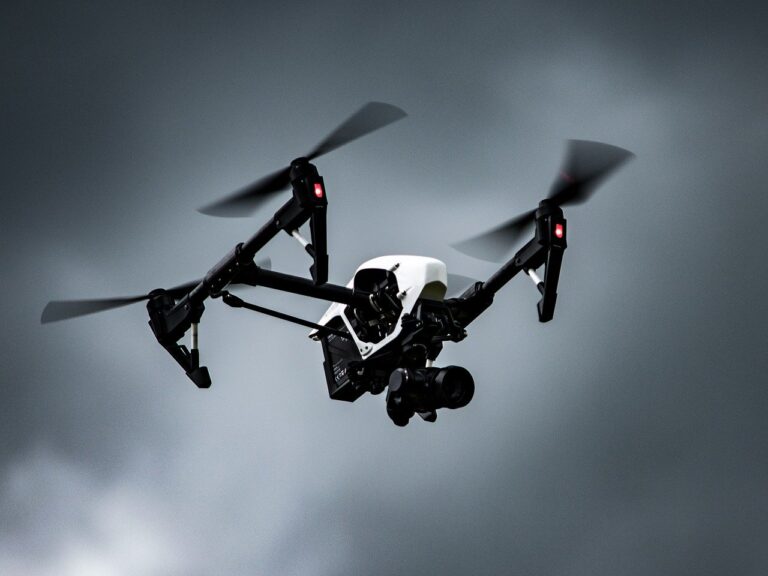
Policy Radar March 2020
Although this 201st session was expected to have the lowest number of government-introduced bills, the new COVID-19 virus epidemic has led to a standstill as the government focuses on ways to circumvent the medical crisis. The Prime Minister has urged schools to close and has announced emergency subsidies to support working parents, although the former decision is not binding and is ultimately up to local governments and school boards to decide. In a rare weekend appearance, the Prime Minister has calmed the public assuring that his government will do everything “to protect the safety and living of the people.” Despite the efforts by the Health Ministry and the Cabinet, the approval rating of the Prime Minister has fallen to 41.0%. This comes after a slew of political scandals, resulting in the lowest fall in the last two years. The government is now considering postponement of Chinese President Xi-Jingping visit which was scheduled for spring.
There has been considerable movement in policies affecting various sectors of business. In this installment of Policy Radar, we will be focusing on Pharmaceuticals, Technology, Finance, Energy, Integrated Resorts and Defense:

Pharmaceuticals
Abe announces emergency subsidies to help contain COVID 19
The Japanese Prime Minister, Shinzo Abe, has pledged to provide subsidies for working parents so that they can cope with the planned school closures due to the COVID 19 outbreak. In an exceptional weekend press conference, the Prime Minister has reassured the country that the government will do everything they can to stop the spread of the virus. The government will help households through a newly established subsidy system, with the reserved funds for emergency measures (¥270 billion). The emergency subsidies will be provided to both permanent and non-regular employees. Other emergency measures will be discussed and drawn-up by the relevant ministries during the first week of March, but it is reported that employment subsidies will also be distributed to encourage telework. Additionally, Abe stressed that Japan is carrying around 4,000 tests a day to diagnose the virus, but that more efforts to provide 3,000 more hospital beds for the infectious and reducing the diagnosis testing time to 15 minutes are necessary. From the beginning of March, the virus tests will also be covered by the public insurance system, even if conducted by private health institutions. On a similar note, the Prime Minister has calmed concerns over the accessibility of face masks, pledging that the government will buy the excess of supply after he asked manufacturers to double the production to over 600 million units per month. The Prime Minister will ask the opposition for bipartisan support in order to pass emergency legislation to help contain and deal with the coronavirus epidemic.
Health Ministry mulls using Avigan for COVID 19 cure
The Health Ministry is considering an anti-influenza treatment, Avigan, to treat parties infected by COVID 19. The antiviral drug developed by a branch of Fujifilm Holdings Corporation, fights RNA viruses and has been used previously for Ebola virus disease (EVD) treatment. The Health Minister, Kato Katsunobu, has said that the ministry will do everything it can to stop the spread of the virus, but that there is not yet an established cure for infected patients. However, he added that health experts overseas claim influenza-medication may be helpful in treating the virus. The ministry is currently leading research at fighting the disease and will determine whether anti-flu drugs can be administered by health institutions. The ministry released a basic policy to contain the virus at the end of February, urging people to avoid large gatherings. Where there have been infection cases, people are urged to stay at home.

Technology
Government introduces bill supporting domestic drone companies
The Japanese government introduced a bill in the Diet aiming to see support measures for its domestic drone industry to tackle security concerns posed by foreign competitors, such as China. With this bill, the government hopes to incentivize Japanese companies to further develop drone technology through government procurement programs. This will reduce investment regulations and increase public funding for Japanese makers. Government procurement programs will mainly consist of disaster relief and infrastructure inspection activities. In disaster relief, from fiscal 2020, the government would like to provide drones to firefighting agencies in all prefectures. The Japan Coast Guard will also replace foreign makers’ drones for Japanese units from fiscal 2020.
Artificial Intelligence to be deployed in customs controls
The Finance Ministry has decided that it will rely on artificial intelligence (AI) on its custom duties to identify prohibited items in shipments imported to the country. The Ministry believes that the use of AI to identify contraband will significantly reduce the current amount of time custom officers take inspecting parcels. The AI system will initially be introduced before the Olympics this year in locations handling about 100 million international pieces, notably including Haneda, Narita, and Kansai airports. The system will then be deployed over to all customs locations and their branches from next year to eventually control all sea and air international parcels.
Finance
Finance Ministry orders exemptions for investments in domestic strategic industries
Last year, the Japanese Diet approved a bill that would require government pre-screening processes if foreign investors purchase 1% or more in companies that are included in 12 sectors deemed to be critical for national security. While the further details of the regulation and the implementation are still being developed, Cabinet decrees and ministerial orders will likely include companies which manufacture products for military purposes, cybersecurity, energy, telecommunications, water supply, and railways. A government screening will ensue if the foreign purchaser aims to have a representative on the board of a listed company or wishes to submit a proposal to the shareholders’ board. However, the current proposal exempts various foreign financial bodies and hedge funds if they meet the criteria beforehand. In most instances, foreign security brokerages, insurance companies, banks, and asset managers that already have an overseas license will not need to go through government prescreening. Although this law has been met by resistance by “Corporate Japan,” laws of this nature have already been passed in European countries and the United States. It is expected that this law will affect 500 of Japan’s listed companies.

Natural Resources
Jogmec to open-up to foreign rare-earth metals projects
Japan, cooperating alongside the United States and Australia, will invest in processing plants for rare-earth elements (metals), essential for the development of advanced technology and machinery (e.g.. electric vehicle motors). With over 58% of its rare-earth metals imported from China, the Japanese government aims to reduce this dependency to or lower than 50% by 2025. To do this, legislation will be amended by the government to allow for public participation in rare-earth smelting projects. This will most likely take the form of investments through a government institution, the Japan Oil, Gas, and Metals National Corporation (Jogmec). Currently, the Japanese delegation is still negotiating the details for different projects, primarily located in America and Oceania. Alongside an effort to secure Japan’s continuous access to cobalt, essential for lithium-ion batteries, Jogmec plans to invest around ¥20 million to secure rare-earth elements.
Energy
The United States and Japan sign memorandum seeking private-led initiatives in the energy and infrastructure industries
The United States’s Treasury and the Japanese Ministry of Economy, Trade, and Industry and the Ministry of Finance have signed a joint agreement to increase investments in energy and infrastructure projects stemming from the private sector. The memorandum highlights the need to bilaterally address existing regulatory and legal barriers for American and Japanese companies, while simultaneously widening regional markets. This reflects both governments’ compromise to offer private-sector solutions to compete with other regional public infrastructure projects, such as China’s Belt & Road Initiative. However, this agreement also highlights the desire to include investment to enhance commodity trading markets, such as for liquefied natural gas.
Cabinet approves bill aiming at securing electricity supply in times of disasters
The Cabinet approved a bill which aims to secure electricity supply during emergencies, in response to prolonged and impactful power outages experienced in the last few years in the wake of natural disasters. The government envisions to revise its current electricity business bill, which is planned to be submitted to the Diet in this current session, to require utilities to have contingency plans to ensure smooth cooperation with other firms, local governments, and the Self-Defence Forces. If the bill passes, such contingency plans will be required to be completed by fall this year. The Economy, Trade, and Industry Minister, Kajiyama Hiroshi also highlighted that utilities will have to share information on recovery work and the information of disaster damage. Additionally, he previews that electricity suppliers will be asked to pool funds for the recovery of disaster-affected utilities.

Integrated Resorts
Local preparations for IR bidding process continues
The Yokohama City Council approved the local government’s plan to establish a specialised committee to assist the city on the selection of an IR operator. The establishment of the committee was passed with the votes from both the Liberal Democratic Party and Komeito. This committee will be composed of seven experts in local economies, such as tourism and related fields, reporting their findings to Yokohama’s Mayor, Hayashi Fumiko. It is expected that the city will launch its basic IR policy in March and a subsequent request-for-proposal process in June this year. On the other side of the island, the Wakayama prefectural government has decided to go forward with a request-for-proposal process from this spring, without waiting for the release of the Ministry of Tourism’s basic IR policy. Like the city of Osaka, Wakayama Prefecture aims to open an integrated resort before 2025.
Defense
Japan and Australia to reach a Reciprocal Access Agreement for their military personnel
The Japanese and Australian governments are in the process of bargaining to reach a joint forces agreement in June this year. Both nations are looking to use Australia’s Head of government, Scott Morrison’s official visit to Japan to announce the conclusion of the agreement. The Reciprocal Access Agreement will include a legal framework with its criminal procedures, immigration controls, and a taxation system, to be used when troops from both countries are temporarily stationed in each other’s countries. This legal framework will be applied on both cases of joint exercises and disaster-relief activities. Negotiations for this defence agreement go back to 2014, where Australia showed reluctance to let its military personnel be brought to justice under Japan’s penal code. Once the negotiations between Japan and Australia are over, Japan will seek a similar agreement with the United Kingdom.
Langley Esquire provides a full range of public affairs consulting services, including policy monitoring, stakeholder mapping, issue management, public procurement, and government relations.
Contact us to learn more about what we can accomplish for you.
